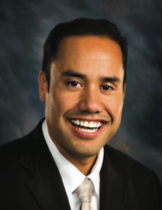After-School Programs Key To Youth Well-being

Direct from Donovan… Senator Donovan Dela Cruz
According to the Annie E. Casey Foundation Kids Count Data Center project, Hawaii ranks No. 25 when it comes to how children are faring across the U.S.
The report ranks states in economic well-being, education, health, and family and community
The report states that 70 percent of fourth-graders in Hawaii are not proficient in reading and 68 percent of eighth-graders are not proficient in math. To date there are 90,000 children living in single-parent families, 7,000 teens who abuse alcohol or drugs, and 6,000 teens who do not attend school and are not working.
There are approximately 20-25 hours per week that children are out of school while most parents are at work, thus creating an after-school gap.
A report commissioned by the National Institute on out-of-school time in association with the Boston After-School for All
Partnership program highlighted the importance of after-school programs on student development.
Recognizing the importance of after-school programs, this past session I introduced SCR185, which requests the Department of Education organize and coordinate out-of-school programs for kindergarten through 12th grade. The bill also identifies funding opportunities for current and future DOE out-of-school programs.
The intent is to provide structured care and activities for children who may be home alone, and thus susceptible to risky behaviors and other dangers.
Programs that include sports, art and music foster positive youth development, helping children build character, identify specific abilities, and improve fitness and academic commitment.
Aside from the childcare and supervision value, these programs provide youth development and skill building that have been reported to reduce and prevent delinquent behavior.
In conjunction with DOE and PlayRugby USA, I am working on developing a program for middle-school students to play flag rugby during after-school hours.
The state Department of Public Safety reports that Native Hawaiians and Pacific Islanders comprise more than 40 percent of Hawaii’s inmate population. The flag rugby program would focus on three DOE complex areas with the highest population of Native Hawaiian and Pacific Islander students.
By incorporating physical activity, academic development and a social environment, students will have a safe haven from 3to6 p.m., and also will learn the necessary discipline that is required to be successful in society. The idea is to take it statewide after the first year.
Afterschool programs are increasing in number and popularity, but Hawaii is one of the most costly states for childcare and out of reach for many working families. We work to provide affordable after-school programs to ensure that Hawaii’s youths are in safe and nurturing environments in the after-school hours.





